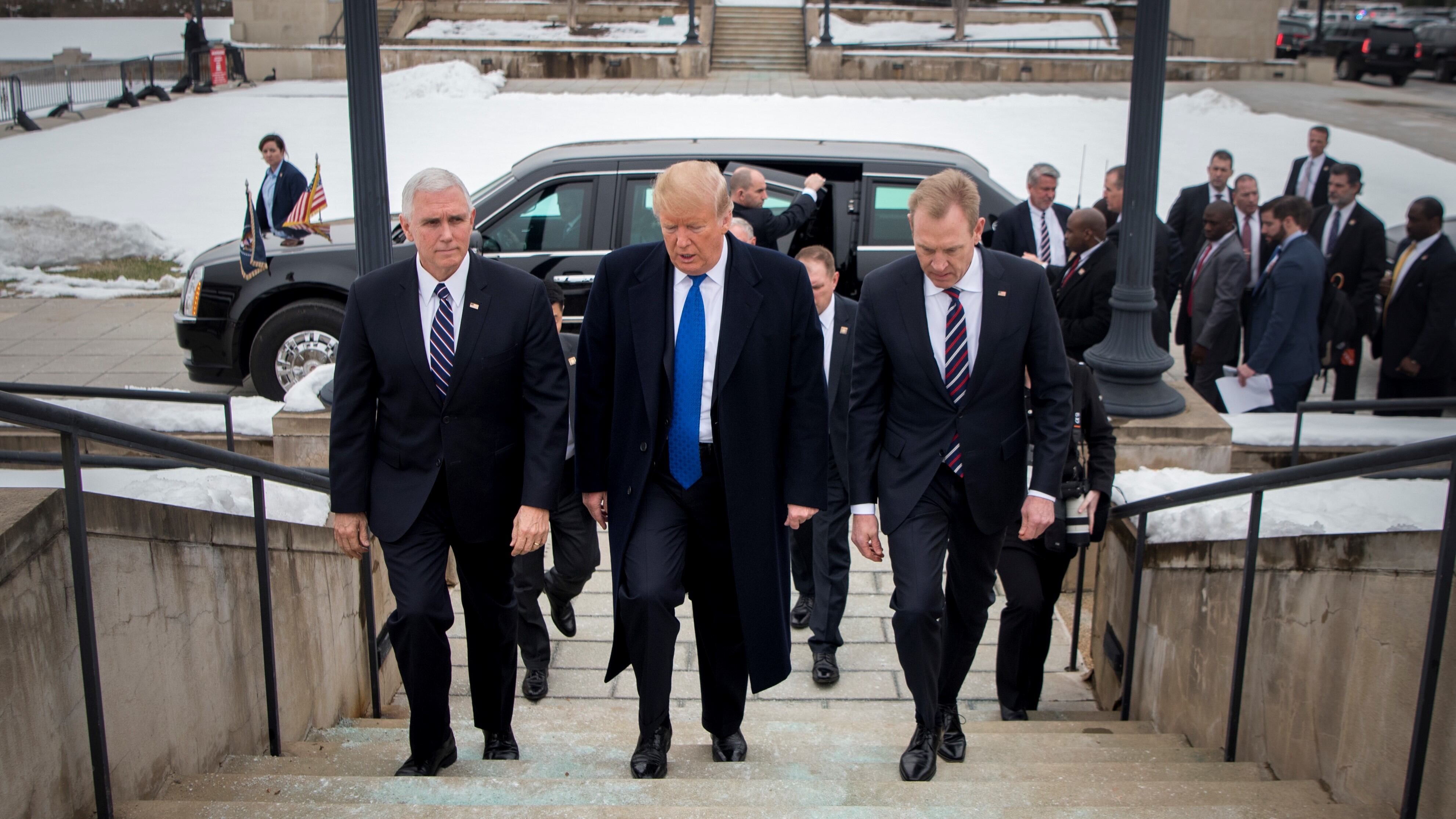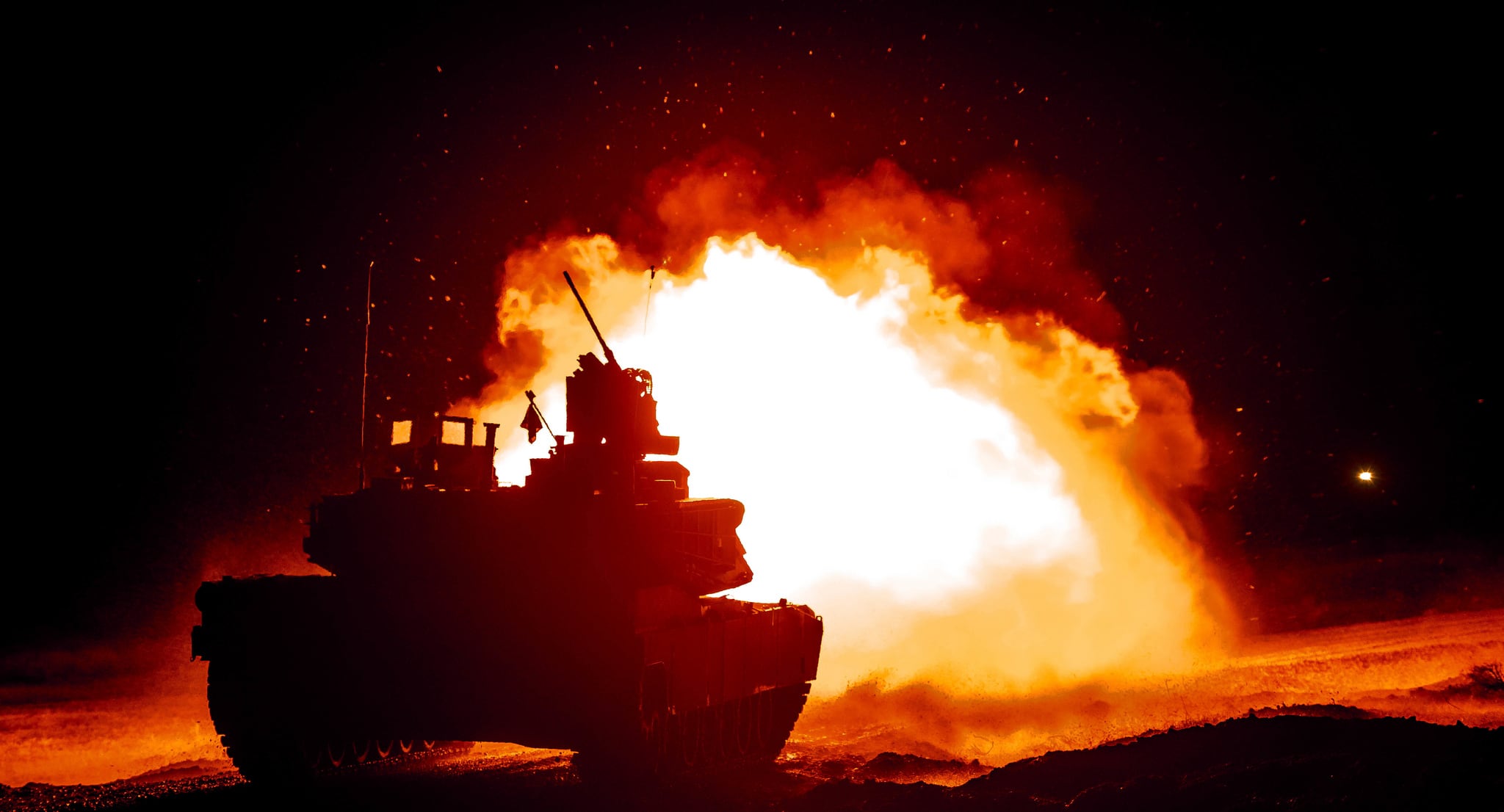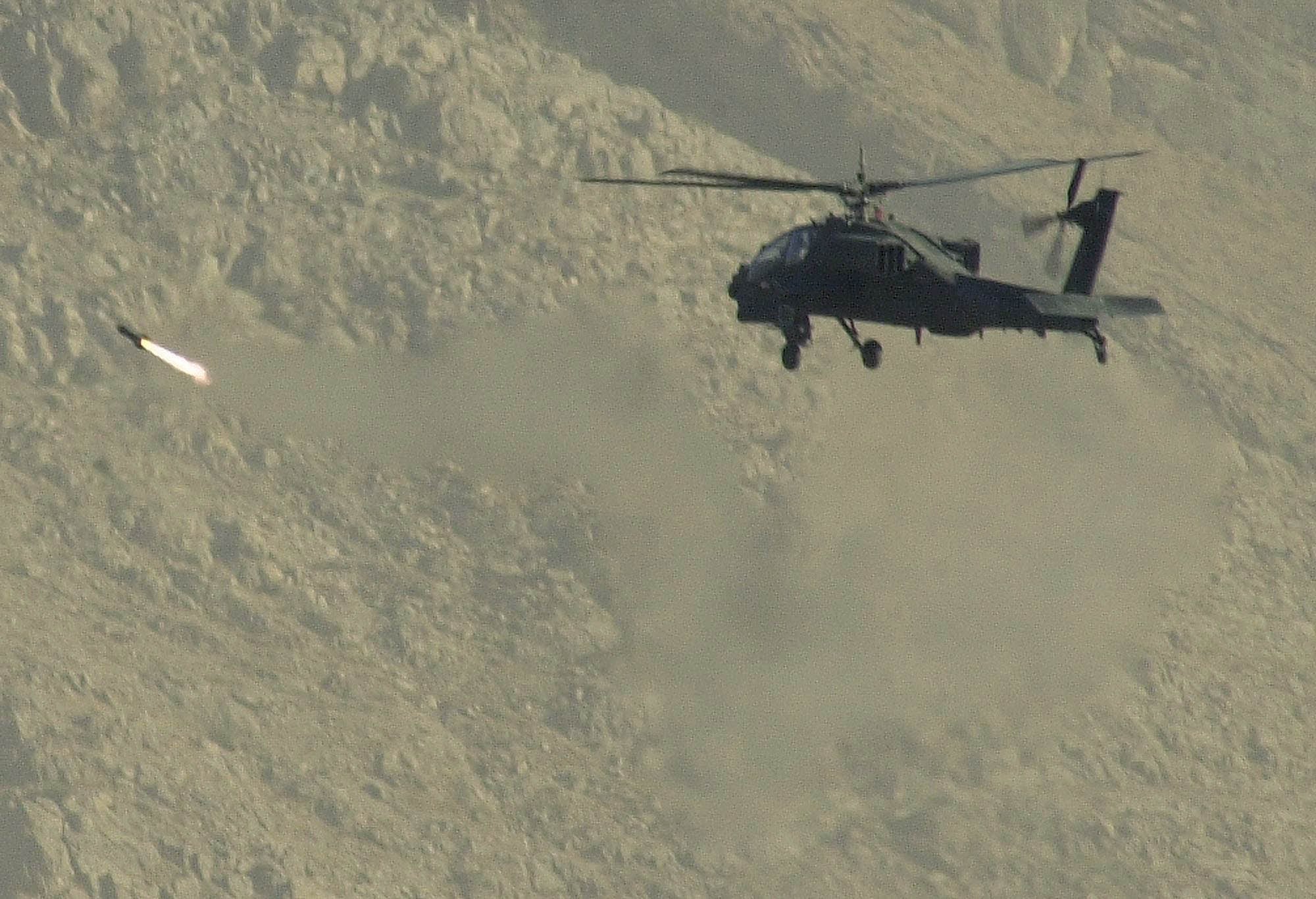WASHINGTON — Amid political fights about defense funding for the southern border, restrictions on transgender individuals in the military and a bipartisan rebuke of the Trump administration’s support for conflict in Yemen, acting Secretary of Defense Patrick Shanahan will attempt to keep the focus on the growing threat from China during a budget hearing Thursday.
In remarks submitted to the Senate Armed Services Committee, Shanahan argues for what he calls “my vision of the future,” one defined by investments in high-end capabilities that can ensure overmatch over everyone in the world, but particularly Beijing, which he describes as a whole-of-government threat to the U.S.
Shanahan, who will appear with Chairman of the Joint Chiefs Gen. Joe Dunford and Comptroller David Norquist, also remains steadfast in supporting the National Defense Strategy, a document he helped craft under then-Secretary of Defense Jim Mattis, saying the implementation of the document is “our most critical mission.”
RELATED

In order to execute the NDS, Shanahan writes, the Congress needs to support the administration’s $750 billion national security budget request, which included $164 billion in Overseas Contingency Operation funding for the Pentagon — a move members of Congress have already said is a no-go.
“Every line of our FY2020 request is designed to implement our strategy. Therefore, every dollar of it — both in baseline funding and overseas contingency operations — is critical,” he writes.
For in-depth coverage of the Pentagon’s FY20 budget request, click here.
Roughly four of the 20 pages of written testimony discuss China; two and a half deal with Russia; two combined pages on North Korea, Iran and terrorism; and a paragraph each on Venezuela and the southern border.
The latter could perhaps be the most contentious issue likely to pop up during the hearing. Shanahan will point to his visit to the El Paso area to assess the security situation and DoD’s role in supporting Department of Homeland Security partners. In his opening statement, Shanahan will say that “Military construction on the border will not come at the expense of our people, our readiness, or our modernization.”
Partly, those focus areas are because of the nature of the hearing, which is to encourage members to support the recently submitted Pentagon budget request. Naturally, new capabilities and the necessity to fund them takes up much of his commentary.
But the topic breakdown in written testimony also hints at where Shanahan feels his strengths and interests lie, according to an administration official familiar with his thinking, who said “That’s his personality. He’s not a politician. He came here to modernize the Department of Defense. That’s what he wants to focus on.”
“There is a big difference between the political, congressional conversation, and what most of the Department of Defense does on a daily basis,” the official said. “Bottom line, we’re making the shift regardless of what’s on the front of CNN or whatever on a daily basis. Yes, it takes some time away in terms of border and other things, but Shanahan is really focused on China.”
“It’s a constant repetition every day, every week, using all the different tools at our disposal, and constantly saying ’remember China, remember the NDS. Remember China, remember the NDS.’”
RELATED

Shanahan — whose message to staff on his first day as acting secretary was “China, China, China” — warns of China’s growing nuclear capabilities, its interest in space-based systems, and its investments in the military over the last decade. He has a special section calling out technology theft, warning that “every Chinese company is at risk of being either a witting or unwitting accomplice to China’s state sponsored theft of other nations military and civilian technology.”
In that section, the former Boeing executive also calls out U.S. firms that “have voiced ethical qualms about working with DoD to develop advanced technology, in some cases even terminating relationships — often while continuing to work with China.”
For Russia, the acting secretary highlights that Moscow is expected to have a new hypersonic weapon enter its service this year, stating that Russian president Vladimir Putin is “playing a weak strategic hand well.” He also hints towards U.S. military efforts to secure the ballot box, citing “our recent successful efforts to stymie Russian disruption of our midterm elections.”
And while following the White House line that NATO members need to increase their contributions to defense, Shanahan — who visited NATO last month as part of his first trip abroad since taking over as acting secretary — notes that “NATO contributions do not all boil down to simple dollar amounts.”
RELATED

In the only hint towards the controversy over transgender servicemembers, Shanahan writes: “We encourage and welcome all individuals who can meet our exacting requirements to join our military’s ranks. A key element of strengthening our military and increasing lethality is ensuring our warfighters achieve established physical, mental and security vetting standards. War is unforgiving, and our mission demands we remain a standard based organization. In upholding systemically applied standards, we ensure the readiness of our Joint Force and cohesion of our units.”
He also notes that increased deployability standards across the board have lowered the percentage of non-deployed service members from 6.5 to 5.4, or roughly “21,000 fewer non-deployable service members today than eight months ago.”
All in all, Shanahan’s comments largely resemble those that might have come from Mattis, which the administration official says is not a surprise, given Shanahan’s support for the NDS.
“Telling people we need to reprioritize away from counter-terrorism operations and focus on Russia and China — Mattis, as a voice, was uniquely postured to explain that and I think he did," the official said. "The oversight committees are now on board. But the next click down is, what does that mean, and that’s where Shanahan spent the last 18 months and that’s where he will continue to drive if he becomes secretary of defense.”
Aaron Mehta was deputy editor and senior Pentagon correspondent for Defense News, covering policy, strategy and acquisition at the highest levels of the Defense Department and its international partners.








